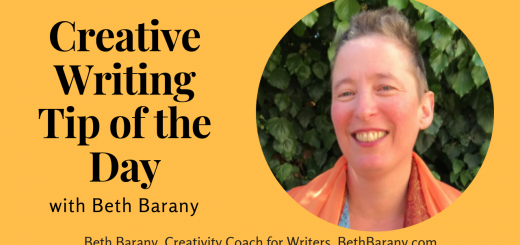CRAFT: The Author’s Voice — Subjective versus Objective
Welcome to the weekly series on craft. We authors need to write excellent books for our readers to enjoy. This week’s guest author on craft, Kat Duncan, shares about author’s voice. Check out her upcoming year-long novel writing course that begins in May 2011 at Savvy Authors. (Yippee!) We’d love to hear your thoughts on how to craft a strong author’s voice. Thanks!
^*^
CRAFT: The Author’s Voice — Subjective versus Objective
By Kat Duncan
Objective opinions are balanced, logical, clear and clean. You want objective opinions when you are buying a major appliance or making a critical medical decision. Subjective opinions are biased, irrational, imprecise and dirty. You want subjective opinions when you are writing. Wait, I thought you had to be clear in your writing? Yes, clear in the meaning of what you are writing, but if you are trying to give the reader a balanced opinion of what is going on in the story, you are making the reader work too hard. Make those decisions for the reader so they can enjoy the story. Don’t forget your job here is to entertain.
How can you be subjective with your writing? Use subjective details in your author’s voice.
Not really sure what author voice is? Neither was I. For a long time I thought author voice was a style choice such as writing in first person instead of third person, or deciding whether to use contractions in prose or save them for dialogue. Mechanical decisions like whether to use long, complex sentences or short, simpler ones might make a difference in how formal and stuffy or chummy and average-Joe the style of the book was, but real author’s voice comes in the form of what kind of person the reader thinks the book’s characters are.
So how do we as readers decide what kind of people the characters are? Well, I think mainly by how they (that is, the author) tell us about themselves and their world. OK, so I just grabbed a random book off my shelf and I’m going to try to figure out what subjective details the author used in the first few pages to not only give me a compass in the story world, but also give me a sense of the author’s voice.
The book is Just Take My Heart by Mary Higgins Clark. The first few pages are narration by the character Natalie. Normally, I would find this fairly boring, but the first paragraph runs as follows:
It was the persistent sense of impending doom, not the nor’easter, that made Natalie flee from Cape Cod back to New Jersey in the predawn hours of Monday morning. She had expected to find sanctuary in the cozy Cape house that had once been her grandmother’s and now was hers, but the icy sleet beating against the windows only increased the terror she was experiencing. Then, when a power failure plunged the house into darkness, she lay awake, sure that every sound was caused by an intruder.
Notice the choice of words in the opening paragraph. A whole slew of fear-provoking words surrounding two comforting words “sanctuary” and “cozy.” Ms. Clark follows the first paragraph up with a very good reason for Natalie to be afraid. This not only sets the mood for the story, which is a mystery, but the whole opening is thoroughly subjective. It clearly shows Natalie’s fear along with very clear reasons for her to be afraid.
The key point is that if the author’s voice is strong, then the author can convince me that Natalie is afraid and if I believe that Natalie is afraid for good reason, then I believe in Natalie’s fear along with her. If I share Natalie’s fear, then I care about what will happen to Natalie and I’m hooked into the story.
Should Ms Clark have given me an objective version of this situation? After all nor’easters are quite common and while they can bring sleet, snow and power outages, most people live through them without incident. Not at all.
If she had done that, I’d be wondering why Natalie was so stupid as to drive away from Cape Cod in the middle of a storm in the middle of the night. The way Ms. Clark wrote it, I agree with Natalie’s decision and hope that she makes it back to Jersey in one piece.
So, my question to you all is: what specifically are you doing in your scenes (and in particular, in your critical first scene) to make the story subjective and to make your strong voice come through to the reader?
A little about me:
I write romantic suspense for The Wild Rose Press, and am also an Indie author of romantic suspense and historical romance. I love sharing my knowledge with others and give online classes in writing fiction.
Thanks for stopping by. Share your comments here today and check out my year-long novel writing course that begins in May 2011 at Savvy Authors. Seating is limited to only 30 students! You’re probably going to want to sign up now. Class starts May 2nd!
*^*
You can find Kat Duncan online at http://www.katduncan.net/writeabout.








Thanks for hosting my guest blog today, Beth! I’d like to comment that we’ve just decided to change the novel course to a 6 month format. You’ll get all the great lessons, critiques and guidance you need and have a completed novel in half the time for half the price! The course is open to all genres and we already have a variety of genres in our class. Spots are filling up fast!
wow what a great post on voice!
Hi Eliza! I’m so glad you enjoyed the post!
Kat, Thanks for letting us know the change in course dates. Glad to know spots are filling fast!
[…] about author’s voice. writersfunzone.com […]